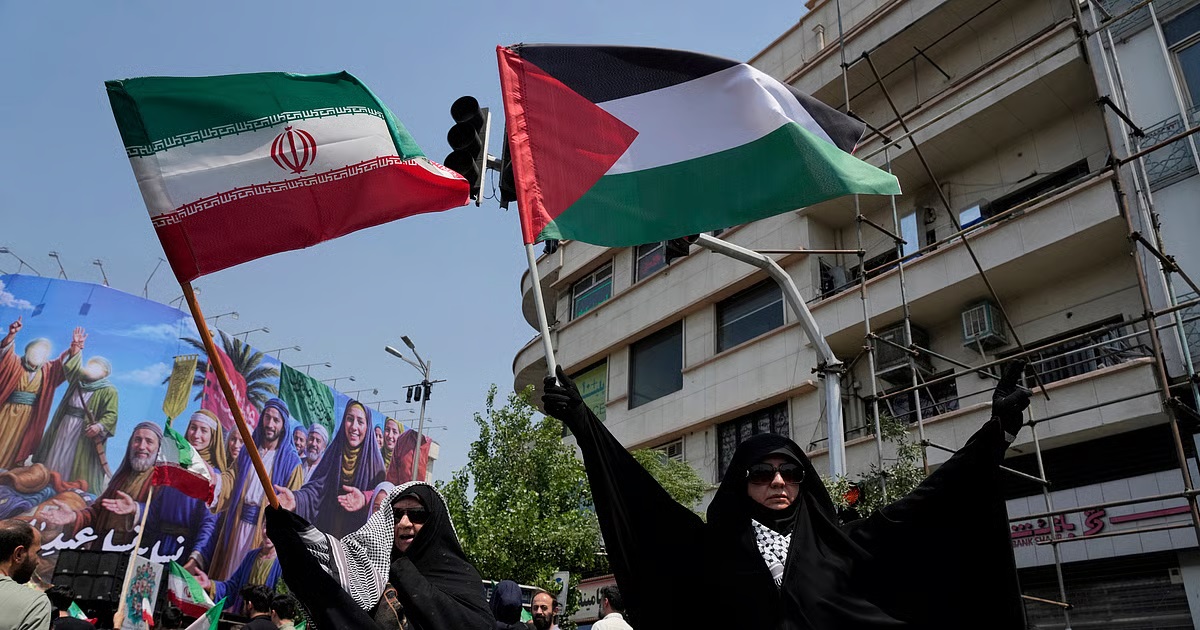Iran’s Foreign Minister, Abbas Araghchi, has accused the United States of supporting Israel’s recent military strikes on Iran, stating that such attacks would not have been possible without American backing.
Speaking at a press conference in Tehran on Sunday, June 15, 2025, Araghchi asserted that Iran possesses substantial evidence indicating that U.S. forces and their regional military bases played a direct role in facilitating Israel’s operations.
He added that U.S. President Donald Trump had openly acknowledged prior knowledge of the strikes.
Araghchi noted they relied on American weaponry and equipment, and even hinted that more attacks might follow.
“In our view, this makes the United States complicit in these assaults and accountable for the consequences,” Araghchi stated.
He further revealed that although the U.S. had sent messages through intermediaries claiming no involvement in Israel’s strike on the Natanz nuclear facility in Isfahan, Iran finds these denials unconvincing.
“We do not accept this explanation,” he said, emphasizing that Washington should take a clear stance and publicly denounce the targeting of Iran’s peaceful nuclear infrastructure.
“This attack violates international law,” Araghchi added.
“If the United States truly seeks to demonstrate sincerity about nuclear non-proliferation, it must condemn the aggression and disassociate itself from such acts.”
The Israeli assault occurred just as Iran and the United States were preparing for a sixth round of indirect nuclear talks, mediated by Oman, scheduled for Sunday.
Araghchi alleged that Israel, determined to derail diplomatic efforts, is willing to go to any lengths to sabotage negotiations, as it has done in the past.
‘Grave Strategic Error’
According to Iranian authorities, the Israeli attacks since Friday have targeted both military and civilian areas across the country, including the capital, Tehran.
At least 80 people, among them civilians, top military officials, members of the Islamic Revolutionary Guard Corps (IRGC), nuclear scientists, and academic professionals, have been killed.
In retaliation, Iran launched two consecutive nights of drone and missile strikes on Israeli cities including Tel Aviv and Haifa, resulting in at least 10 fatalities and dozens of injuries.
Araghchi noted that Iran began targeting Israel’s energy sector after Israeli forces struck Iranian oil refineries, power stations, and fuel reserves.
During the early hours of Sunday, explosions rocked Tehran as Israeli airstrikes hit a fuel depot in the Shahran neighborhood, igniting a large fire.
Iranian officials reported that most of the stored fuel had been evacuated before the raid and that the fire was eventually brought under control.
On Saturday, Israel also targeted Iran’s southern coastal region, striking Phase 14 of the South Pars gas field near Asaluyeh in Bushehr Province, one of the world’s largest natural gas reserves.
Araghchi described this attack as a “serious strategic miscalculation” designed to provoke broader regional involvement.
He warned, “The Persian Gulf is a highly sensitive and volatile region. Any escalation here risks drawing in neighboring countries and potentially igniting a global crisis.”
Both nations have stated their military operations will persist for the time being.
On Sunday, the Israeli military issued a warning to Iranian civilians to avoid facilities related to weapons production or support services, suggesting they would be considered legitimate targets.
Later that day, fresh Israeli air raids struck several locations throughout Tehran, including the central Valiasr district and northern Niavaran area.
Despite ongoing hostilities, Araghchi indicated that Iran is open to halting its attacks, on the condition that Israel does the same.
He called on the international community to step in, condemn Israeli aggression, and work toward de-escalation.
Media Coverage and National Sentiment
Iran’s newspapers devoted significant attention to the conflict on Sunday.
Hardline publications highlighted Iranian retaliation, while more moderate outlets emphasized a theme of national unity.
Keyhan, a newspaper whose editor is appointed by Supreme Leader Ayatollah Ali Khamenei, led with the headline: “We will finish the war and Israel together.”
Also, it described severe destruction in Israeli territory from Iranian missile strikes.
The reformist Ham-Mihan chose the headline “National battle,” reflecting a unifying tone, while Etemad warned of “Israel’s gamble on a minefield.”
Sazandegi, another prominent outlet, featured the phrase “Slap for Tel Aviv” as its lead story.







